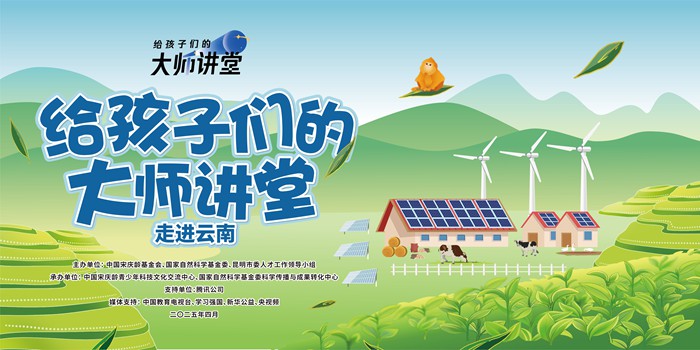
The first leg of the "Master Class for Children" event, co-hosted by the China Soong Ching Ling Foundation (CSCLF), the National Natural Science Foundation of China (NSFC) and the Leading Group for Talent Work of the Kunming Municipal Committee of the Communist Party of China (CPC), was held in Kunming No.3 Middle School of southwest China's Yunnan Province on the morning of April 15.
With the theme "New Quality Productive Forces behind a Tea Leaf", Wan Xiaochun, director of the National Key Laboratory for Tea Plant Germplasm Innovation and Resource Utilization at Anhui Agricultural University, and Wang Yuefei, deputy dean of the College of Agriculture and Biotechnology at Zhejiang University, talked with students there about tea's millennia-old history, sci-tech mysteries and future farming in their lectures.
The special classroom event combined traditional culture with modern science, allowed students to appreciate tea flavor, and ignited their enthusiasm for science.
Millennia-old tea culture encounters modern technology
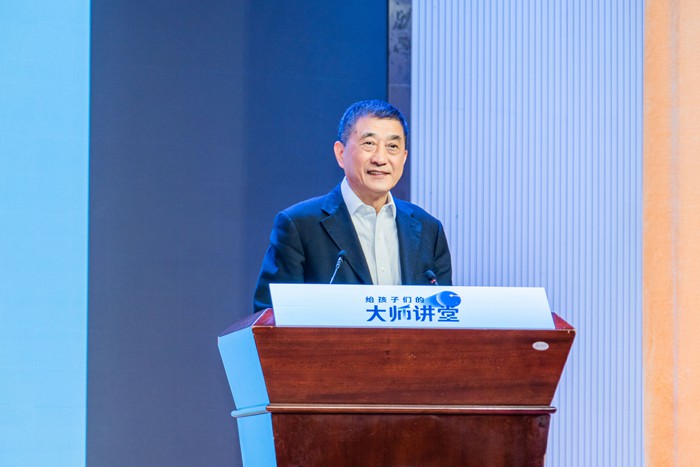
Wan is also vice-director of the Plant Production Sub-Committee of the Teaching Steering Committee for Higher Education under the Ministry of Education, member of the Science and Technology Committee under the Ministry of Agriculture and Rural Affairs, deputy director of National Technological Committee for Tea Standardization, vice-president of the China International Tea Cultural Society, and member of the State Food and Nutrition Consultant Committee.
"Do you know that the Chinese people started to use tea about five thousand years ago? During the early period of the West Zhou Dynasty (1046 BC - 771 BC), the Chinese people began to plant tea trees," said Wan in the opening remarks of his thematic lecture. As a domestic leading expert in the tea field, he quickly captivated the attention of on-site students and explained to them the civilization history behind tea leaves.
Wan has taken the lead in the drawing of a gene map of Chinese tea trees and the research & development of digital quality-control technology and equipment for the automatic processing of green tea, built a state-level key laboratory of tea research, and promoted global recognition of Chinese tea standards. Noting that China is the origin of the global tea culture, he added that Chinese tea culture has made tremendous contributions to the global civilization and become common wealth for mankind in terms of materialistic and spiritual aspects.
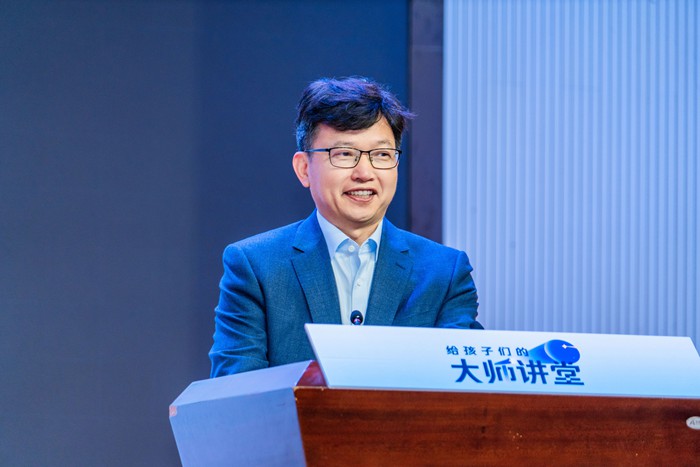
Wang is a leading researcher of tea-related academic disciplines at Zhejiang University, head of Tea Research Institute at Zhejiang University, member of the State Council's Academic Degrees Committee and the Tea Expert Guidance Committee under the Ministry of Agriculture and Rural Affairs, and chief expert of tea science promotion in the China Association for Science and Technology.
Wang has been mainly involved in the teaching and research of tea's biological and chemical properties, fitness function and muscle texture of natural products, and the comprehensive utilization of tea resources. He has successfully rolled out over 50 tea-related goods, published about 100 research papers and a dozen of books, and received several state-level invention patent rights.
Wang stressed that tea's fitness functions are not only the wisdom of Chinese ancestors but also a treasure of modern science. In the lecture titled "Technological Innovation and the Development of China's Tea Industry," he spoke with students about tea industry, culture, components, health benefit, lifestyle and technologies.
Wang introduced that China has built the world's largest and most diverse gene bank of tea trees and set up a core germplasm repository on the basis of phenotype and genetic diversity analyses. In addition, he displayed such scenes as drone inspection on the tea farmland, smart tea-picking robots and advanced tea processing lines through the PPT presentation.
Many students marveled at new vitality injected by sci-tech innovation into Chinese tea industry, the introduction of diverse tea-related products in alignment with youth's special demands via technological integration, and the combination of tea with modern life.
Exchanges between two experts and students
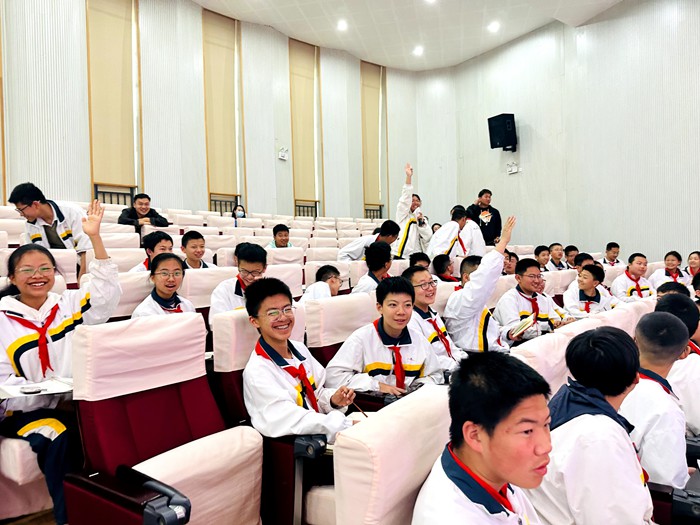
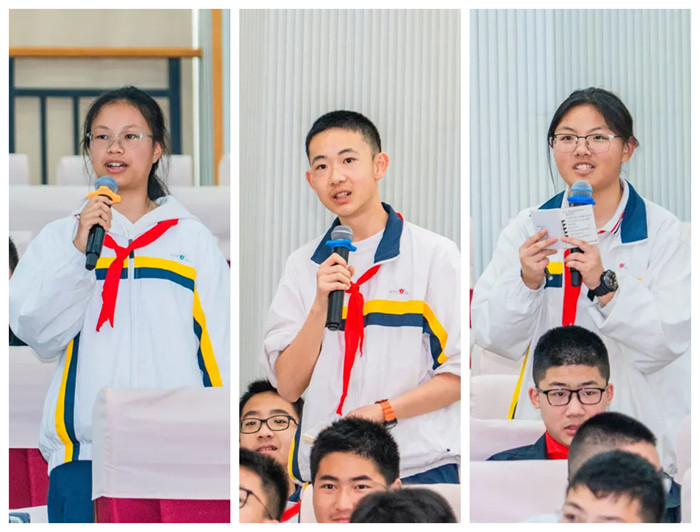
Many students proactively raised their questions to two visiting experts during the warm interaction stage. The topics of their questions ranged from the utilization of biosynthesis technology in the production of tea's functional components to the balanced development between sci-tech innovation and cultural inheritance relating to Chinese tea culture, and the building of affordable intelligent services platforms for small-scale tea farmers.
Wan and Wang responded to students' questions and asked them to study hard, strive to be talent, pay more attention to Chinese tea and make breakthroughs in the plantation, promotion and innovative development of tea.
"In the past, we knew little about knowledge and technologies behind tea leaves, though we often drank tea. After attending the thematic lectures, we have become deeply interested in the tea industry and further realized the importance of sci-tech innovation toward the development of the tea industry. In the future, we will study harder and endeavor to support the building of our hometown with knowledge," said many students during an interview.
Bring scientific experiments into classroom
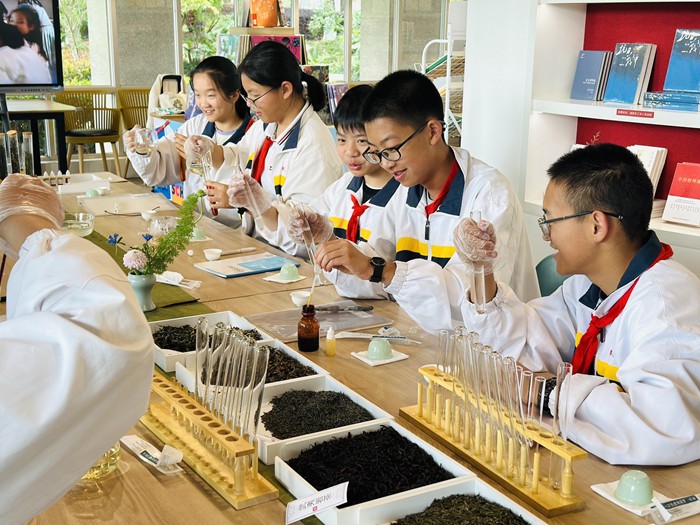
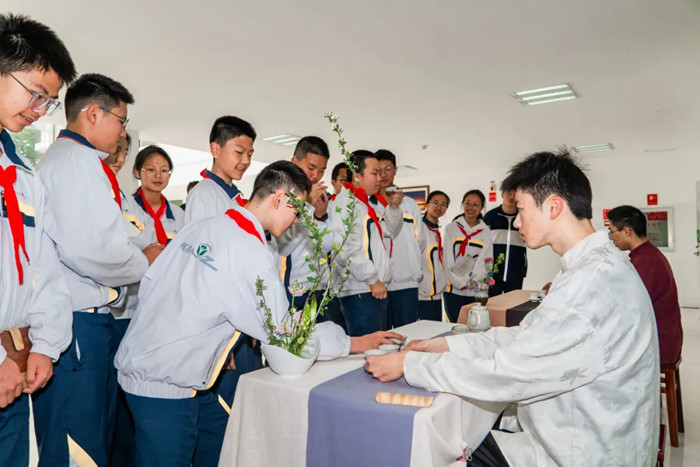
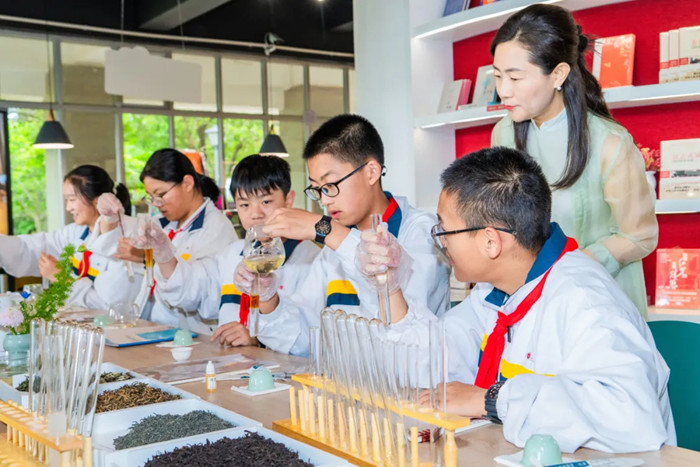
Organizers also arranged special experience activities in connection with tea culture and sci-tech agriculture to help students further deepen personal understanding and love of their hometown whilst acquiring science knowledge.
With beakers, reagents and microscopes available, students followed the guidance of teachers to explore the antidiabetic properties of tea polyphenols and undertake relevant chemical reaction. They became highly excited that the gold-yellow tea soup changed its color into blue when it encountered ferric salt and that the solution became colorless when it was mixed with oxidant.
"The experiment helps us learn more about the positive effects of tea upon mankind. We will connect the development of Chinese tea industry with national destiny and cultivate it into a Chinese name card," said attending students.
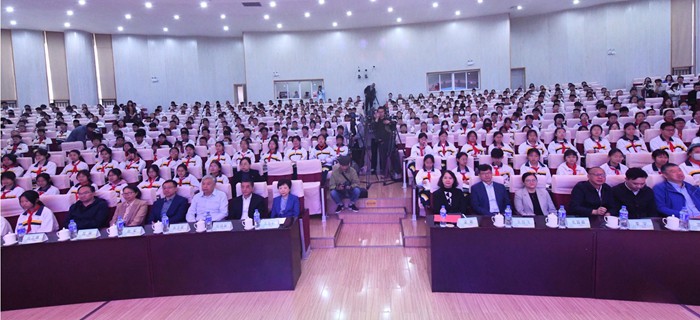
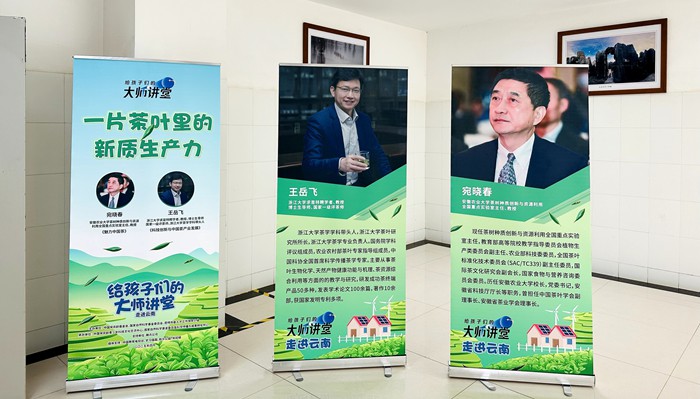
At last, many students presented their written message cards to the Wan and Wang to convey personal respect to them and underscore the longing of knowledge and the aspiration for a better future.
To Professor Wan Xiaochun: In your classroom, I have realized that tea is a microcosm of China's glorious history. In the future, I will strengthen the integrated promotion of Chinese tea culture and tea-related technology, study hard, and make Chinese tea known worldwide. Thank you for sowing a tea seed in my heart.
To Professor Wan Xiaochun: Thank you for giving to us a lecture about tea and helping us grasp a deep understanding of the tea history and bolster cultural confidence. In the future, I aspire to learn more about tea, become a guardian of Chinese civilization, and promote the worldwide popularity of Chinese tea culture.
To Professor Wang Yuefei: You have shown to us rich and proud Chinese tea culture with humorous and witty language. I hope that in the future, I can share a cup of the world's finest Chinese tea with you at Zhejiang University and work together to realize the great Chinese dream of national rejuvenation. Professor Wang, wait for me! Zhejiang University, wait for me!
To Professor Wang Yuefei: I used to think that tea was far away from me. Right now, tea has already become part of our lives. I am extremely interested in your discussion on "new tea drink." I hope to become a researcher in the field of Chinese tea like you in the years ahead.
